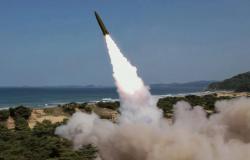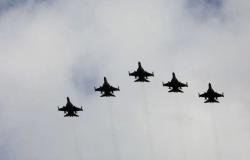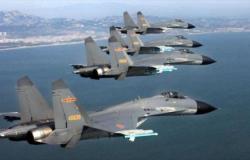The United States has developed a strategy called “Hellscape” to deter China from invading Taiwan. This is read in an editorial published by the newspaper “Washington Post”, which includes statements by the admiral samuel paparo, new commander of US forces in the Indo-Pacific. According to the admiral, the Chinese president’s plans Xi Jinping For the forced annexation of Taiwan, they foresee “a short and clear war”, preceded by very little warning and which “puts the world before a fait accompli, before it can react.” “Hellscape” was conceived precisely to respond with the greatest harshness to a sudden Chinese offensive: the idea – Paparo explained – would be to launch “thousands of underwater, maritime and aerial drones” as soon as a Chinese invasion fleet undertook the attack. the Taiwan Strait, “saturating the area” and giving Taiwan, the United States and the forces of other regional allies time “to mount a comprehensive response.” “I want to turn the Taiwan Strait into a drone hell using a variety of covert capabilities,” Paparo said in the interview, given on the sidelines of the annual Shangri-la Security Dialogue, recently hosted in Singapore. “By doing so, you would make life (for Chinese forces) miserable for a month, buying time for everything else.”
The admiral added that he could not give more details on the matter, but assured that the strategy “is real and executable.” The “Washington Post” emphasizes that there are some signs in this sense: last March, for example, the Department of Defense announced the allocation of one billion dollars to the “Replicator” program, with initially vague lines, but little Little by little they focused on development. of aerial and naval drone swarms for the Indo-Pacific theater. However – the newspaper warns – drone swarms alone will not be enough to offset the aggressive militarization undertaken by China on its side of the Taiwan Strait. According to Paparo, the Chinese military’s budget is probably three times higher than that declared by Beijing, an estimate that would put it at around $700 million a year. By contrast, the US Indo-Pacific Command is short $11 million for the current year alone, according to a letter sent to Congress last March by Paparo’s predecessor. In addition to budget constraints, Paparo’s biggest concern is hypersonic cruise missiles developed by China specifically to sink American aircraft carriers and large warships. Finally, another concern for Washington is represented by the scenario of a Chinese naval blockade of Taiwan, which would not imply offensive military actions by Beijing, and to which, therefore, it would be more complex to respond effectively.
Also read other news about Nova News
Click here and receive updates on WhatsApp
Follow us on Nova News social channels at TwitterLinkedIn, Instagram, Telegram






